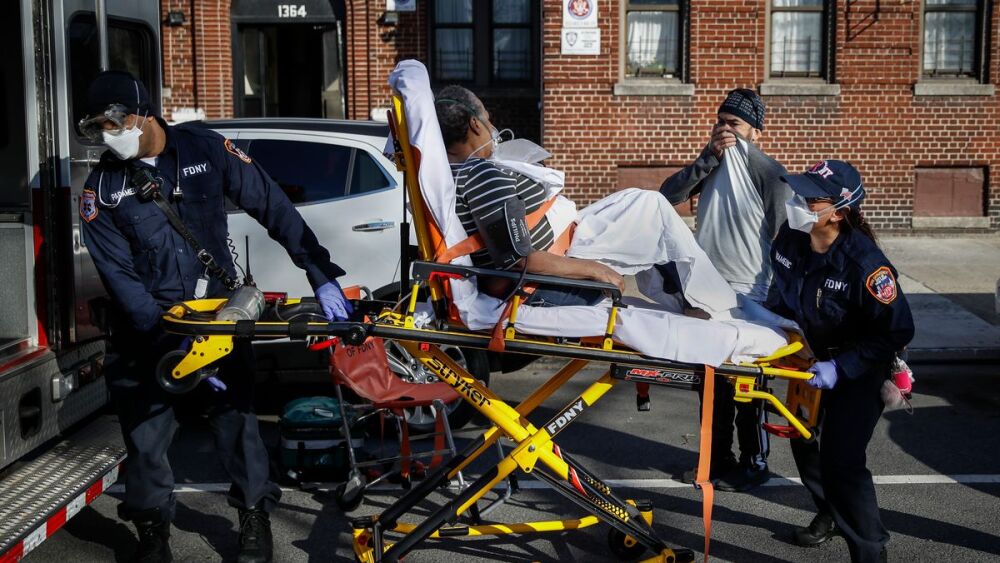Clinical
Access our directory of clinical articles in EMS, which offers in-depth information on patient assessment, treatment protocols, and emerging medical practices. This collection covers various clinical topics essential for EMS professionals, from advanced pharmacology to trauma management. Staying up-to-date with clinical knowledge is vital for delivering high-quality patient care. For additional resources, explore our section on Medical Research. Enhance your clinical expertise with our expert-driven content.
Gaining patients’ confidence can be achieved by deliberate actions, like connecting with caregivers, as well as small subtleties, like body language and facial expressions
Put yourself in the patient’s position to gain an understanding of how their fear may complicate your interventions
Including clear, complete documentation in your patient care report is a critical component of patient care
Improperly used or maintained patient care and devices can cause harm to patients and providers
The goal of EMS quality improvement should be the efficient correction of inappropriate practices and behaviors, not exacting vengeance
They’ve developed drug therapy that treats shock and acts like a pharmacological tourniquet by reducing internal blood loss by up to 60 percent
An ultrasound machine, while not an exact replacement, gives the soldiers something similar to a CT scan or X-ray machine
Understand the origins of sepsis criteria and what the new sepsis definitions mean for EMS assessment and treatment of septic patients
Crews were transporting a child to the NICU with lights and sirens on when an ATV rider opened the door of the ambulance and accused the EMS providers of cutting them off
Neal Raisman, 68, fielded more than 100 calls; some were from pranksters while others were from people making illegal offers
Understand the findings of the amiodarone vs. lidocaine vs. plain saline (ALPS) trial and what those findings mean for EMS providers
A teenager’s death after a misplaced and unrecognized failed intubation is a tragic reminder of how and why error can occur in EMS
Paramedic Tim Keirn stopped to help when he saw a person collapsed on the shoulder of a highway
Hospitals have made a variety of policy and procedural changes to get patients in and out of the emergency department faster
The 81-year-old man’s legs gave out and tumbled to the ground; crews noticed his lawn wasn’t done and finished the job
Waveform capnography can be used to detect respiratory and circulatory compromise from anaphylaxis in children and to guide treatment
Using hospital outcomes to evaluate field performance
Realizing that no matter how skilled my hands or knowledgeable my head, what matters most to my patients is my heart
Paramedic 12-Lead ECG acquisition and interpretation drives decisions for pharmacological interventions and patient transport to PCI-capable centers
If convicted of sexual battery and gross sexual imposition, Samuel Conkel faces a maximum of six and a half years in prison
Will Smith reflects on his prehospital background, emergency medicine career and the future of EMS after receiving the John P. Pryor Street Medicine Society Award
Zika virus has been looming all winter, but local governments can get ahead of the problem as mosquito abatement season begins
In one incident, Allan Reyna was called to help a patient suffering respiratory distress at a nursing home; a witness said he threw an oxygen tank that struck and injured another patient
An ATV rider opened the door to an ambulance and accused the EMS providers of cutting them off; crews were transporting a child to the NICU with lights and sirens on
Our co-hosts discuss the week’s news and the benefits of an online EMS education
The survival of fire-based EMS may rest upon delivering services before 911 is called; it’s a tough proposition, but a doable one
True loyalty is pushing for improvement, rather than accepting substandard patient care from your peers and co-workers
















